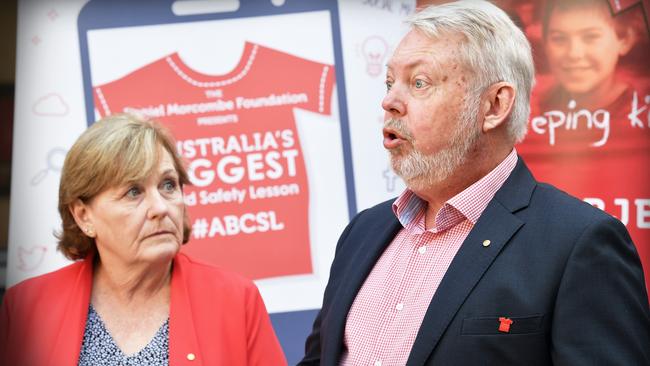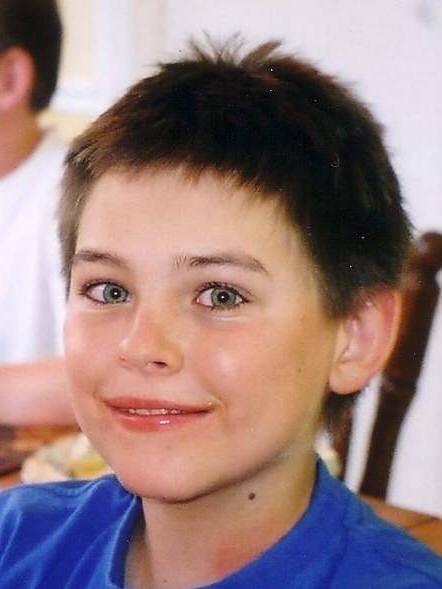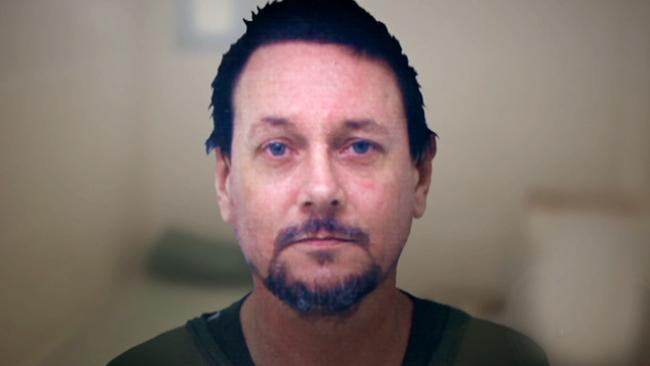Morcombes step up fight for public sex offender list
Inaction on a sex offender register is not an option for Daniel Morcombe Foundation co-founder Bruce Morcombe, who has been frustrated by a delay to progress.

Police & Courts
Don't miss out on the headlines from Police & Courts. Followed categories will be added to My News.
Inaction on a national sex offender register is not an option for Daniel Morcombe Foundation co-founder Bruce Morcombe, who has been frustrated by a delay to progress.
He and wife Denise have today penned a document outlining the proposed publicly accessible sex offender register, referred to as Daniel's Law.
In December 2003, 13-year-old Daniel Morcombe was abducted and murdered by Brett Peter Cowan.

In January last year Australian Home Affairs Minister Peter Dutton pledged $7.8 million for the establishment of a National Public Sex Offender Register.
But as yet there is no register.
Program to identify next 'Cowan' kicks off
What Bruce Morcombe would ask Daniel's killer
"We have our priorities in the wrong order," Mr Morcombe said.
"Inaction is not an option.
"The time is here and now to see some progress on the national register.
"We cannot sit on our hands any longer.
"Courageous decisions are required by our State and Federal leaders."
Mr Morcombe said while the proposed register was not a silver bullet, it could be the latest step in the government's fight to keep kids safe.
"We can't undo what has been done but we can focus on what we can change," he said.
"With the register, the criminal comes second.
"What is number one is protecting our kids.
"It will protect our kids."

Mr and Mrs Morcombe on Wednesday put their signature to a document outlining the details within the proposed sex offender register.
Since 2014, the Morcombe family have publicly supported and advocated for the development of the register in Australia, in honour of Daniel.
Daniel's Law would ensure the register was freely accessible to the community, federally funded and understood more broadly as an educational tool.
It would aid in the safety of children by allowing families to be educated in the privacy of their own home about the geographical whereabouts of high-risk convicted offenders.
Mr Morcombe expressed his support of the register being a strong criminal deterrent.
"If you are a person with a warped interest in young children, you need to seek help," he said.
"They're not just going to get a slap on the wrist by the courts, their name has the potential to be listed on this website forever and surely as a human being you don't want to go there."
According to the foundation, the proposed register would contain the following information:
- Offender's name, alias and nickname.
- Geographical area of an offender's principal place of residence
- Ability to statistically search an area for residing offenders
- Detail the general nature of their offending against children
- A current photo and identifying features namely tattoos, unique posture, unusual gait, or stance, hair colour, ethnicity and gender.
The register would not capture information that could assist in the identification of young victims of crime or include offenders aged under 18.
Individuals would remain on the register for a minimum period of 10 years and a maximum of 25 years (life.)
Those against the publicly accessible sex offender register have noted the risk of vigilante behaviour towards offenders.
The Morcombes' recognised this concern and advised strengthened vigilante laws would accompany the register to protect the physical wellbeing and safety of those listed on the register.
While the Morcombes acknowledge, for many in the community, the register was a controversial and polarising subject, if adopted nationally, along with support for young people displaying harmful sexual behaviour and a strong national education program, the benefits would be profound.



